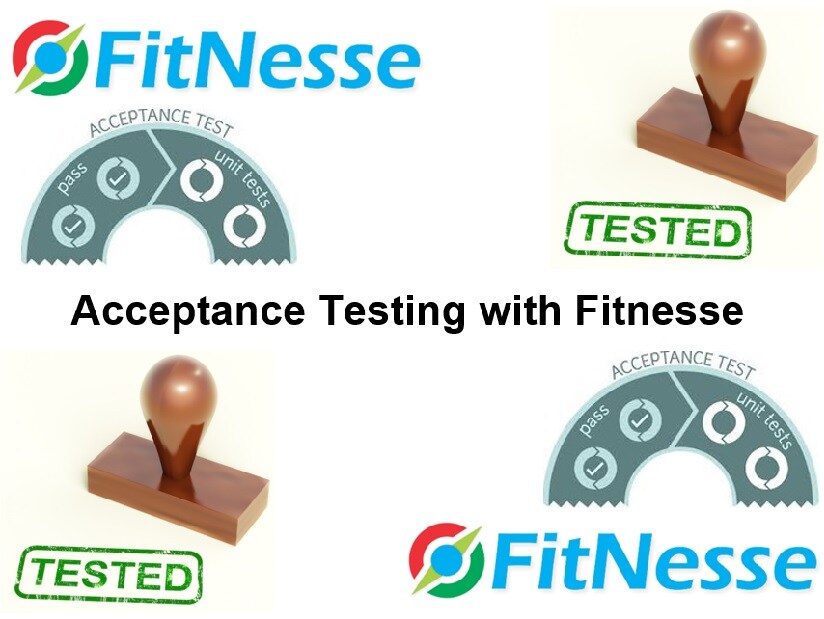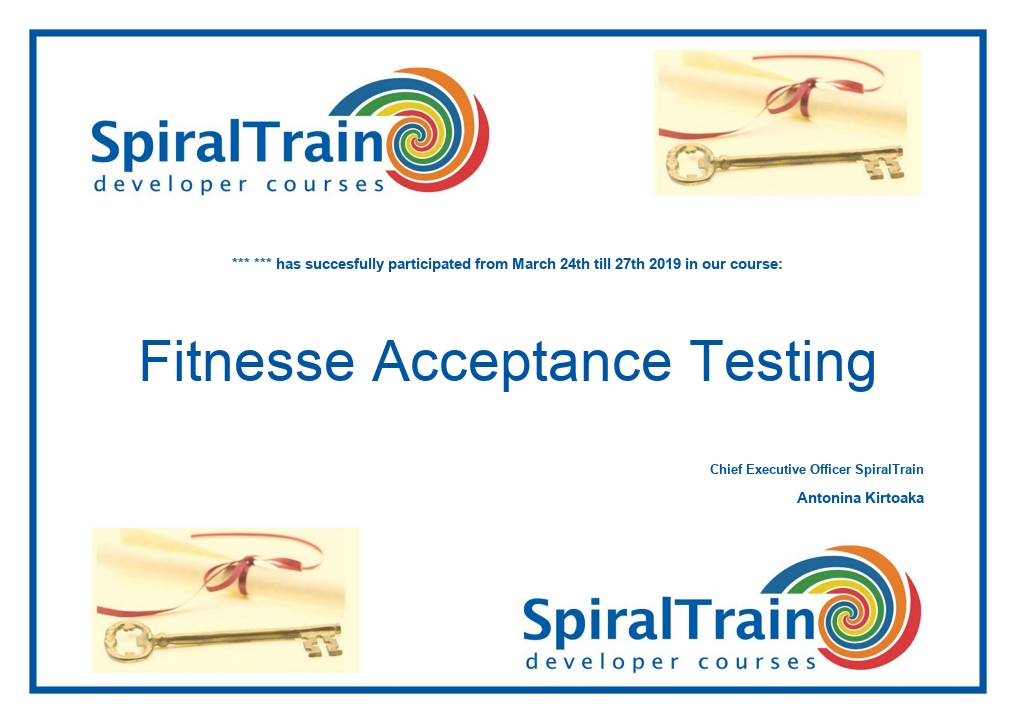-
Learning by doing
-
Trainers with practical experience
-
Classroom training
-
Detailed course material
-
Clear content description
-
Tailormade content possible
-
Training that proceeds
-
Small groups
The course FitNesse Acceptance Testing covers how FitNesse can be used to write acceptance tests. FitNesse is a test automation tool that makes it possible to write acceptance tests in the form of tables on a wiki page.
After an explanation about the installation and architecture of FitNesse, the course FitNesse Acceptance Testing pays attention to the different language bindings that are possible.
It is discussed how you can specify test scripts in the form of wiki tables with FitNesse. These wiki pages are accessible to both testers and business analysts so that both can work on acceptance testing. The various pages in a FitNesse project are discussed such as the Root page, Test pages and the Setup and Teardown pages.
The course FitNesse Acceptance Testing attention pays also attention to the configuration of FitNesse with both the FIT engine with fixture and the SLIM engine with various tables.
By using FitNesse it is not immediately necessary to make tests with a programming language. A set of predefined keywords can be used in a smart way. If a keyword is missing, there is the possibility to expand the set of keywords.
Finally the course FitNesse Acceptance Testing explains the various possibilities and best practices to test both web applications and web services with FitNesse.
The course FitNesse Acceptance Testing is intended for testers, developers and others who want to familiarize themselves with the use of FitNesse for making automated tests.
Experience with testing is required. Experience with the basic principles of programming is recommended, but not strictly necessary.
This is an interactive classroom training with room for your own cases. It is a hands-on training in which theory and practice are interchanged. The theory is presented on the basis of slides and demos. Several scenarios are implemented as exercises. The course times are from 9.30 to 16.30.
After successful completion of the course participants receive an official certificate Acceptance Testing with FitNesse.

Module 1 : FitNesse Intro |
Module 2 : FitNesse Projects |
Module 3 : Configuring FitNesse |
|
What is FitNesse? Acceptance Testing Black Box Testing Functional Testing Test Automation FitNesse Web Server Wiki Tables and Engine Testing Engines SLIM and FIT Language Bindings |
Edit Front Page FitNesse Variables Page Properties Root Page Test Pages Setup Page Teardown Page Fixtures Test Scripts Test Suites |
Decision Tables Setters and Getters Configuring FIT Column Fixture Row Fixture Action Fixture Configuring SLIM Query Table Scenario Table Data Types |
Module 4 : Writing Test Cases |
Module 5 : Running Test Cases |
|
|
System under Test Accessing Elements Scenarios Data-driven testing Verification points Standard Keywords Own keywords Reporting Fitnesse plugins |
Run individually Command line options Run as suite Naming in suites Selective run Smoke test Execution order Names of tables Modular approach |
